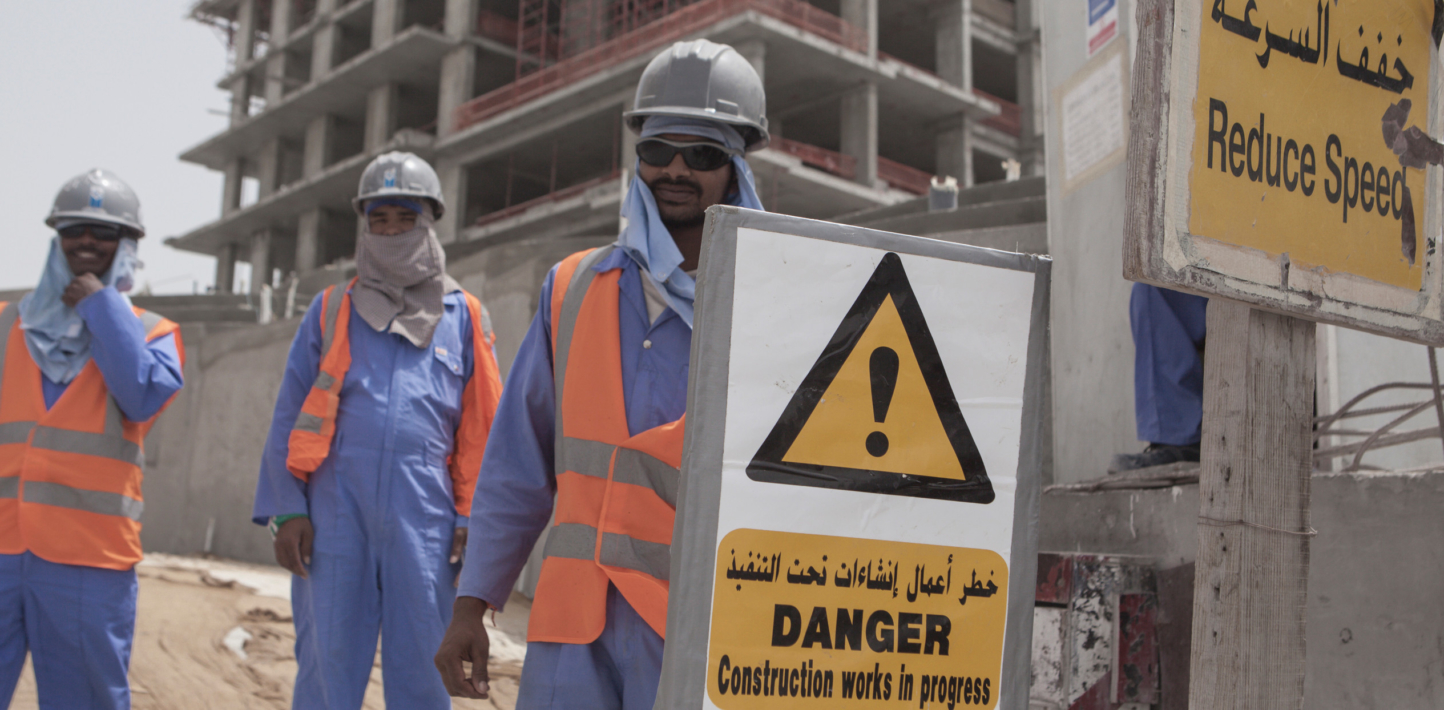By May Romanos, Gulf Researcher, Migrants Rights
Qatar’s efforts to reform laws on workers’ rights could be facing a major setback.
On 22 February, the Shura Council issued a series of recommendations aimed at stripping workers of their newly-found rights. This includes removing the right of migrant workers to change jobs during their contract; limiting the number of times they can change jobs during their stay in Qatar to three; restricting the number of workers in a company that can change jobs to 15% unless agreed otherwise by the company; and increasing the percentage of workers who require exit permits to leave Qatar from 5% to 10%.
If accepted, these recommendations will reverse much of the progress Qatar has achieved to date, and revive the notorious kafala system in all its ugliness.
The first signs that Qatar could be pressured to backtrack on its reforms came in August 2020, after Qatar became the first country in the region to allow migrant workers who fulfilled certain conditions to change jobs without their employer’s permission.
These changes did not sit well with some businesses, which argued that the reforms stripped employers of their rights. Hashtags advocating for the “rights of employers” started to trend on social media – and the law was sent for review before the Shura Council.
In its first meeting to discuss the matter earlier this year, the Minister of Labour briefed the council about these new changes. He explained that “the transfer of sponsorship has rules, controls, and procedures that will preserve the rights of all parties” and that “the number of workers who requested a transfer is few and that those whose requests were approved are smaller.” The minister added that changing jobs is still “subject to approval or rejection after communicating with the concerned parties.”
These were the early worrying signs of a potential shift, shedding doubt on Qatar’s professed commitment to its reform agenda.
What will happen next remains unknown and unpredictable, but for human rights organizations like Amnesty International, who have spent years pushing for better protections for migrant workers in Qatar, these proposals are alarming. With the 2022 World Cup looming, it’s crucial that Qatar does not escape scrutiny if it u-turns on workers’ rights.
Perhaps the timing of these reforms in the middle of a pandemic year where businesses were struggling has complicated matters. Small and medium sized companies have argued that they risk losing their workforce at a time when they cannot afford to hire new employees, and when travel restrictions mean they are not able to recruit new workers.
Some temporary solutions and financial support to address concerns faced by businesses during the Covid-19 pandemic, and in the early days of implementing reforms, should be considered by the government. But it is crucial that any proposals remain in line with international law and safeguard human rights. Indulging businesses at the expense of workers’ rights is not the answer to businesses’ troubles.
While forward-thinking companies will realise that workers’ rights and enhanced job mobility can be good for business, others will fight to keep their privileges intact. Too many have been profiting from years of impunity, under a system which allows them to abuse and exploit migrant workers with few consequences. No one should be under the illusion that changing an inherently abusive labour system is going to be an easy task, but reversing months of progress will harm both businesses and migrants alike
Businesses need to realise the importance of reforms and embrace them, to help Qatar create a more skilled and productive workforce and grow its economy.
In turn, the Qatari government needs to support businesses to transition towards a new model, while halting any attempts to backtrack on hard-won reforms. It must not bow to pressure. Instead it should send a strong message that opposition to reforms will not be tolerated in the future of a country which aims to set an example on migration issues in the region.
The Qatari authorities need to fully embrace a culture of respect for human rights, and bring the business community along so that labour abuses or any practices facilitating them – such the proposals of the Shura Council – will happen no longer. Qatar needs to ensure that Qatari nationals and foreign workers alike have their rights fully respected and protected.
It is about time to fully unroot the Kafala system in Qatar – and ensure that the country remains on track to set an example of progress.


